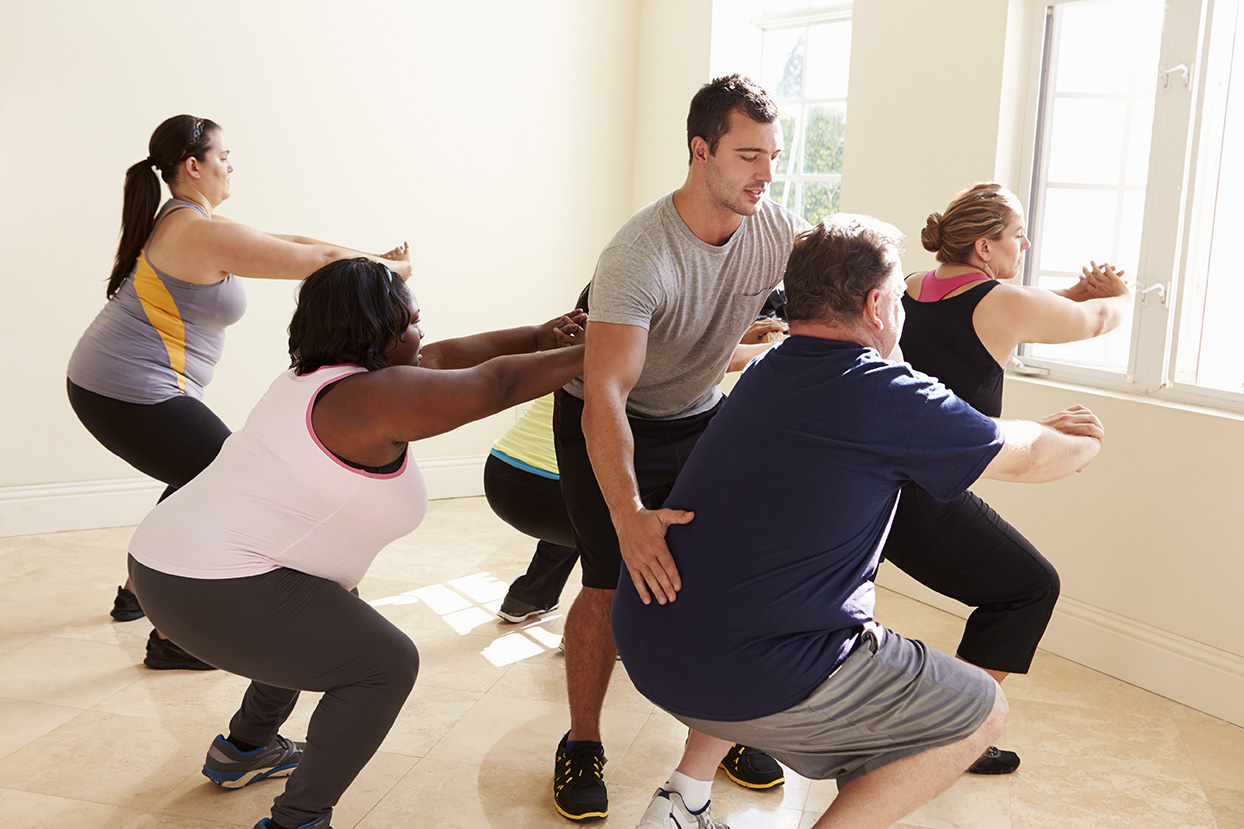What Extra Weight Does to Your Back
When we say someone carries their extra weight well, it’s always an aesthetic statement. Some of us definitely dress right and can feel good, even if we have “a few extra.” However, your joints are less forgiving. Your muscle and skeletal structure suffers a loss of elasticity with excess bodyweight, and you can lose overall flexibility with even a few extra pounds. And the pressure to your spine comes from two opposing directions.
With extra weight held in our stomachs, this adds to the downward pressure on your spine with more pressure tugging your lower spine inward. And with the decreased activity that excess weight often comes with, weaker stomach muscles give us even less support to keep our spines in line.
Extra pressure on your skeletal structure, plus disproportionate pressure on your muscles and discs in your lower back, is an invitation for back injuries and pervasive or chronic pain. And when injuries keep you out of regular workouts, this can lead to even more weight gain.
The impact of higher bodyweight on your spine
The first difference you’ll see and feel in your back when you gain wait is a negative change in your posture, which affects the distribution of weight over the individual discs in your spine. Much of the back pain associated with being overweight or obese comes down to this pressure—the discs actually constrict, trapped between a compressed spine.
Along with the rest of your skeletal structure, joints suffer when adding extra weight to your frame. Knee and lumbar joints, plus hips and ankles are the skeletal structures that bear the brunt of this added pressure.
Strengthening your core—even if you have a few pounds you’d like to get rid of first—is a good place to start in workouts. A strong core boosts your spine during hard physical activities, such as lifting weights or carrying heavy objects—even when that object is yourself. With a stronger core, you’ll have a stronger back, and you’ll be able to keep with the activity level that can prevent weight gain in the first place.
The impact of higher body weight on everything else
With weight gain comes a higher risk for back injuries and back pain, which can keep you out for the count on physical activity. However, weight isn’t only kept off by working out—diet is the essential component to maintain healthy body weight.
When we’re regularly active, it’s easier to eat well. But once our workout routine is broken, we have less incentive to eat the things that keep us healthy. This is where even more weight gain comes from, and where we fall off track with our overall health. This is how the cycle begins: weight gain or injury, break in routine, more weight gain.
For your back health, your skeletal structure, and your overall quality of life, you have every reason to eat healthy and stay within your healthy weight range. Even with holiday gains before summer losses, healthy diet and a strong core and proper joint motion can keep you in line with back health and greater flexibility, and avoid the traps that lock you in degenerative weight-gain cycles.




